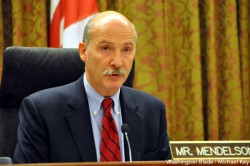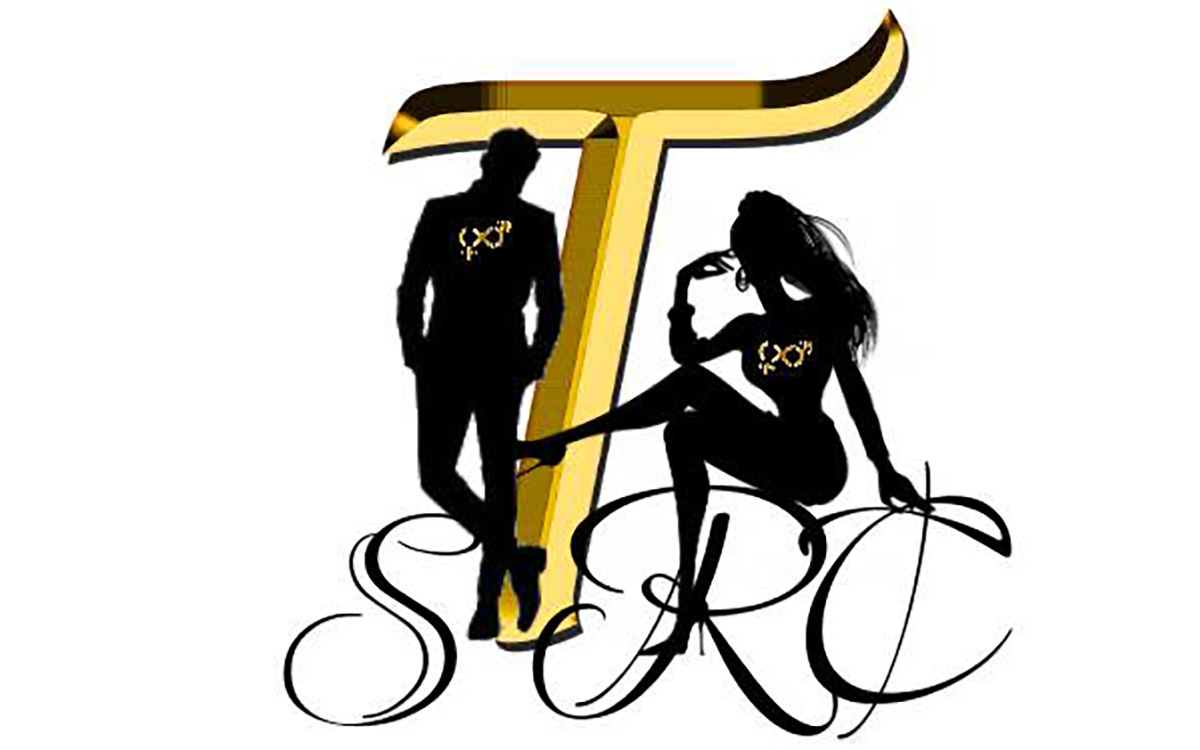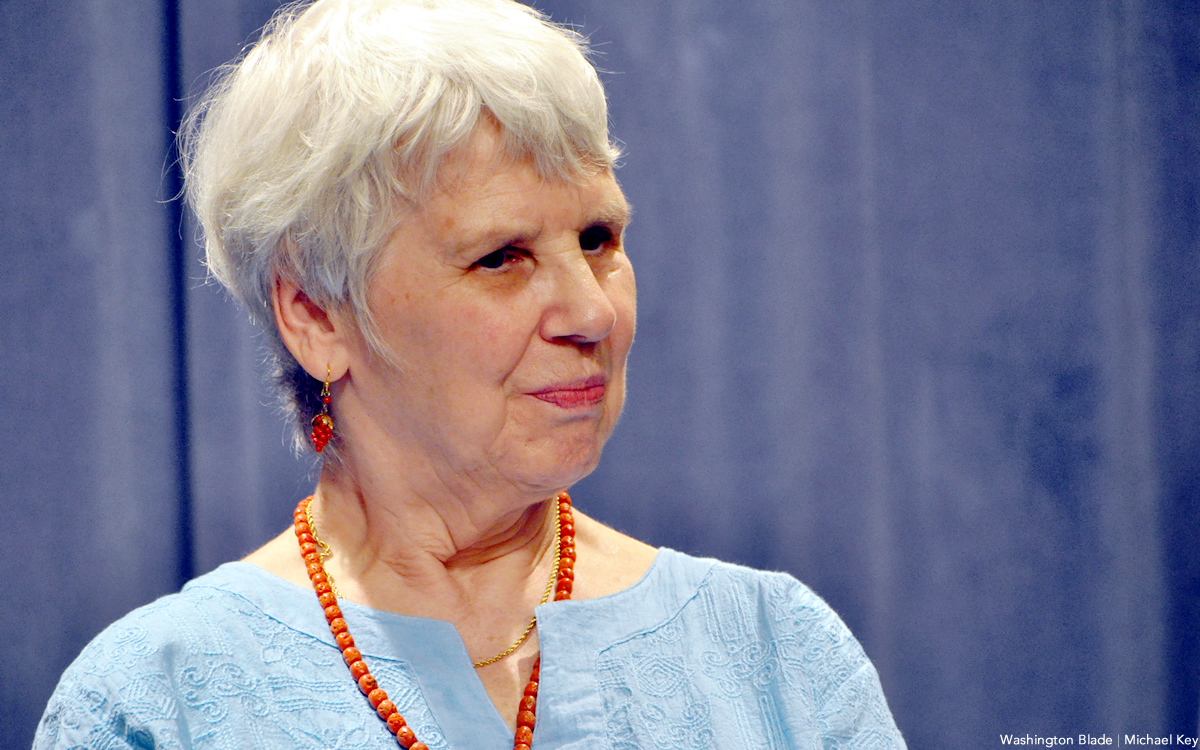Local
D.C. divorce bill for same-sex couples set for vote in ‘early’ 2012
Bill limited to non-D.C. residents that marry in city


Councilmember Phil Mendelson introduced the bill expected for a 2012 vote. (Washington Blade file photo by Michael Key)
In a little noticed development, D.C. Council member Phil Mendelson (D-At-Large) introduced a bill in October that would allow same-sex couples who marry in D.C. but live in states that don’t recognize their marriage to return to the District to get a divorce.
Supporters say the bill, the Civil Marriage Dissolution Equality Amendment Act of 2011, is needed because states that don’t recognize same-sex marriage have no legal mechanism to issue a divorce to gay or lesbian couples who wish to dissolve their D.C. marriage through a divorce.
Under the city’s existing marriage law, which allows same-sex couples to marry, one or both parties to a same-sex marriage performed in D.C. would have to become a city resident for six months before the city would grant the couple a divorce.
Married same-sex couples who are city residents have the same rights to a divorce as opposite-sex married couples under the existing law.
MORE IN THE BLADE: DC MARRIAGE BECOMES LAW
“In order to maintain basic dignity for couples married in the District, and unable to divorce in their home state, this bill is necessary,” said gay activist Bob Summersgill in testimony in support of the bill at a Dec. 8 Council hearing called by Mendelson.
“If we offer civil marriage, we must offer civil divorce,” Summersgill said.
Eight of the Council’s 13 members signed on to Mendelson’s bill as co-sponsors, including gay Council members David Catania (I-At-Large) and Jim Graham (D-Ward 1).
MORE IN THE BLADE: THE HISTORIC VOTE FOR MARRIAGE IN D.C.
The two Council members who voted against the city’s same-sex marriage law at the time the Council passed it in 2009 — Yvette Alexander (D-Ward 7) and Marion Barry (D-Ward 8) — did not sign on as co-sponsors to Mendelson’s divorce bill. Both are up for re-election in 2012.
Mendelson’s bill states that “An action for divorce by persons of the same gender, even if one or neither party to the marriage is a bona fide resident of the District of Columbia… would be eligible for a divorce in the city if the following circumstance apply:
“The marriage was performed in the District of Columbia; and neither party to the marriage resides in a jurisdiction that will maintain an action for divorce, provided that it shall be a rebuttable presumption that a jurisdiction will not maintain an action for divorce if the jurisdiction does not recognize the marriage.”
Brian Moore, an aide to Mendelson, said the full Council is expected to vote on the bill in early 2012. Moore said no one showed up at the Dec. 8 hearing to oppose the bill.
“The legislation addresses a problem with uneven laws across the country regarding marriage rights,” Summersgill said in his testimony. “Only a handful of states are up to the District’s standard of human rights. In states with laws promoting anti-gay discrimination, divorce of legally married same-sex couples is not an option.”
Rick Rosendall, vice president of the Gay and Lesbian Activists Alliance, told Mendelson at the hearing that GLAA endorses the legislation.
“This bill fills a gap in the law crated by our being ahead of the historical curve,” Rosendall said in his testimony. “None of us celebrates the dissolution of a marriage, but equality under the law must extend to every contingency. The lack of a clear legal mechanism for divorce can make an unhappy situation much worse for all involved.”
Virginia
Norfolk transgender resource center vandalized
Anti-trans graffiti spraypainted onto Southeastern Transgender Resource Center’s windows

The Norfolk Police Department is investigating the vandalism of a transgender resource center’s building.
Tarena Williams, founder of the Southeastern Transgender Resource Center, told WAVY that someone spraypainted anti-trans graffiti on the windows of her organization’s offices on Sunday or Monday morning. Williams told the Hampton Roads television station that seeing the messages was like “walking into hell.”
“I opened up STRC, even the Lamina House,” she told WAVY. “I opened up that to get away from those types of words. This is a place you can come to get away from that, but to see that sprayed over the window. It’s kind of like you are walking into hell. … To be honest, I was like in shock.”
Authorities are investigating the vandalism.
West Virginia
Appeals court strikes down W.Va. transgender athlete ban
Ruling finds law violates students’ constitutional rights, Title IX

BY LORI KERSEY | The 4th U.S. Circuit Court of Appeals has struck down West Virginia’s ban on transgender athletes, finding the law violates trans students’ rights under the Equal Protection Clause of the constitution and Title IX, a federal civil rights law prohibiting discrimination based on sex in education programs.
The case, B.P.J. vs. the West Virginia Board of Education, was filed in May 2021 on behalf of Becky Pepper-Jackson, a 13-year-old trans middle school student and track athlete who would be barred from participating if the ban is upheld. Pepper-Jackson is represented by the American Civil Liberties Union, the American Civil Liberties Union of West Virginia and Lambda Legal.
In April 2021, West Virginia Gov. Jim Justice signed into law a bill prohibiting trans women and girls in the state from participating in sports that align with their gender identity. The U.S. Court of Appeals in February 2023 blocked the state from removing Pepper-Jackson from her school’s track and field team as legal advocates appealed a lower court’s ruling upholding the ban.
In Tuesday’s ruling, Judge Toby Heytens wrote that offering Pepper-Jackson the “choice” between not participating in sports and participating only on boys teams is not a real choice.
“The defendants cannot expect that B.P.J. will countermand her social transition, her medical treatment, and all the work she has done with her schools, teachers and coaches for nearly half her life by introducing herself to teammates, coaches and even opponents as a boy,” the judge wrote.
“By participating on boys teams, B.P.J. would be sharing the field with boys who are larger, stronger, and faster than her because of the elevated levels of circulating testosterone she lacks,” he wrote. “The Act thus exposes B.P.J. to the very harms Title IX is meant to prevent by effectively ‘exclud[ing]’ her from ‘participation in’ all non-coed sports entirely.”
In a statement Tuesday, Joshua Block, senior staff attorney for the ACLU’s LGBTQ and HIV Project, called the court’s ruling “a tremendous victory for our client, transgender West Virginians and the freedom of all youth to play as who they are.”
“It also continues a string of federal courts ruling against bans on the participation of transgender athletes and in favor of their equal participation as the gender they know themselves to be,” Block wrote. “This case is fundamentally about the equality of transgender youth in our schools and our communities and we’re thankful the 4th Circuit agreed.”
“We hope today’s ruling sends a message of hope to the trans youth of West Virginia,” Aubrey Sparks, legal director of the ACLU of West Virginia, said in the statement. “And a message of warning to politicians who continue to dehumanize this vulnerable population.”
West Virginia is one of 21 states that have banned trans student-athletes over the last three years, according to the ACLU.
In a statement Tuesday, West Virginia Attorney General Patrick Morrisey vowed to defend the ban and said he is “deeply disappointed” in the decision.
“The Save Women’s Sports Act is ‘constitutionally permissible’ and the law complies with Title IX,” Morrisey said. “I will keep fighting to safeguard Title IX. We must keep working to protect women’s sports so that women’s safety is secured and girls have a truly fair playing field. We know the law is correct and will use every available tool to defend it.”
******************************************************************************************

Lori Kersey is a reporter with a decade of experience reporting in West Virginia. She covers state government for West Virginia Watch.
******************************************************************************************
The preceding article was previously published by the West Virginia Watch and is republished with permission.
Nonprofit, nonpartisan, independent journalism not hidden behind a paywall. Mountaineers are always free, and so is West Virginia Watch.
West Virginia Watch is part of States Newsroom, the nation’s largest state-focused nonprofit news organization.
District of Columbia
Reenactment of first gay rights picket at White House set for April 17
Event marks 59th anniversary of historic push for gay rights in nation’s capital

D.C.’s Rainbow History Project announced it will hold a reenactment on Wednesday, April 17, of the historic first protest for gay rights in the form of a picket line in front of the White House that took place on that same day in 1965.
In a statement released last week, Rainbow History Project says the reenactment will mark the 59th anniversary of an event that is credited with bringing attention for the first time to the federal government’s longstanding discrimination against a minority group referred to then as homosexuals or gays and lesbians.
The statement notes that the 1965 event was organized by the Mattachine Society of Washington, D.C., the first politically active LGBT organization in the nation’s capital founded by local gay rights pioneer Frank Kameny.
“The picket took place on the White House sidewalk, Lafayette Park, 1600 Pennsylvania Ave., on April 17, 1965,” the statement says. “For exactly one hour, from 4:20 p.m. to 5:20 p.m., members of the Mattachine Society of Washington walked in a circle, non-stop, in silence, carrying posters of their demands,” the statement continues.
“The White House picket is the origin story for public demonstrations for gay rights in the U.S., and the origin story for Pride Marches and the annual LGBTQ Pride celebrations which occur across the globe,” according to the statement.
It says those picketing in the April 1965 event, which included Kameny and longtime local D.C.-area lesbian activist Lilli Vincenz, both of whom held doctorate degrees, called on the government to adopt the Mattachine Society of Washington’s four major demands: an end to the exclusion of homosexuals from federal government employment; an end to the ban on gays and lesbians from serving in the U.S. military; an end to the “blanket denial” of security clearances for gay people; and an end to the “government refusal to meet with the LGBTQ community.’
Among those who chose not to respond to the request for a meeting was President Lyndon B. Johnson, who occupied the White House at the time of the 1965 picketing.
Vincent Slatt, the Rainbow History Project’s director of archiving and one of the lead organizers of the April 17 reenactment event, said the event is aimed, among other things, at drawing attention to how far the LGBTQ community has come since 1965. He said the event is not in any way a protest of the administration of President Joe Biden and Vice President Kamala Harris, who Slatt called staunch supporters of the LGBTQ community.
“We are just reenacting this historical event and pointing out how far we’ve come,” Slatt told the Washington Blade. “If you think about what it means in 1965 when these people were protesting and LBJ would not even respond to them. And now, we are at a place where Vice President Harris speaks on a stage at Capital Pride.”
The Rainbow History Project statement notes that the reenactment event will also be held in honor of Kameny, who died in 2011, and Vincenz, who passed away in 2023, both of whom participated in a similar reenactment event in 2008.
Among those who will be participating in this week’s reenactment on April 17 will be longtime local LGBTQ rights activist Paul Kuntzler, who is the only known surviving person who was among the White House picketers at the April 1965 event. Kuntzler will be carrying a replica of his own picket sign he held at the 1965 event, the statement says.
It says Rainbow History Project volunteers will also carry replicas of the original protest signs and hand out literature explaining the picket to passersby and tourists.
Similar to the 1965 event, the reenactment picketing at the White House will begin on April 17 at about 4:15 p.m., according to Slatt of the Rainbow History Project.
-

 Africa3 days ago
Africa3 days agoCongolese lawmaker introduces anti-homosexuality bill
-

 Colorado5 days ago
Colorado5 days agoFive transgender, nonbinary ICE detainees allege mistreatment at Colo. detention center
-

 World3 days ago
World3 days agoOut in the World: LGBTQ news from Europe and Asia
-

 Real Estate4 days ago
Real Estate4 days agoBoosting your rental property’s curb appeal











